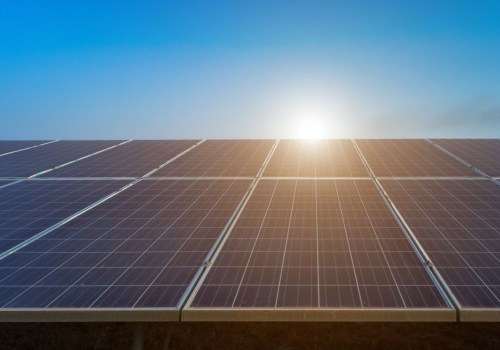If you have solar panels installed on your roof or property, they will continue to generate electricity during power outages, as they do every day. This is because the panels still absorb sunlight and solar energy, which works with solar panels. These panels absorb energy from the sun to create direct current (DC) electricity. However, since most establishments and homes run on alternating current (AC) electricity, DC electricity is converted to AC electricity through an inverter. Once solar energy is converted to AC electricity, it can power your home.
Therefore, solar panels alone won't work during a power outage. Once you have installed the solar panels, your home becomes a goldmine that produces natural energy. But while the sun produces enough potential energy in 1 minute to power the entire world, its solar panels can only produce a limited amount at a time. If you intend to rely on your solar panels during a power outage, you will need an inverter. When your home is connected to the grid and the grid is working, your solar panels send power to the system while you draw power from the grid. Energy conversion is done for you.
But to get power directly from your home's solar power system, you need an inverter. Batteries powered by solar panels can keep your home running even when a power outage lasts several days. And while it's possible to back up your entire home, just one or two batteries can easily give you what you need to stay comfortable and keep working with minimal disruption. This includes things like lights, refrigerator, freezer, Internet router, even an electric stove - all of them can work on a battery. You can definitely boil a kettle, but you might not cook a turkey.
Although your solar panel system won't work during the rare power outage, installing solar panels is overall a lucrative investment that not only helps lower your energy costs but also helps promote a greener planet. In a power outage, the main purpose of a battery is to ensure that you have enough power to be comfortable. If you have solar panels on your roof, you are most likely connected to the electricity grid in your area. And since you're temporarily disconnected from the grid, it means that your solar energy will continue to produce energy, keeping the battery charged. Electricity companies are now preemptively shutting down the power grid because they anticipate a blackout. Let's find out everything you need to know about solar power when power goes out in your neighborhood. But there is some confusion about how to use solar panels during power outages and what to do if you have solar power and the power goes out.
US Leads All Developed Countries in Power Outages and Blackouts5, Affecting Millions of People6 on the Path of Severe Storms, Wildfires, and Heat Waves. For basic backup, most homeowners choose to purchase only one or two batteries and select the essential appliances they need in the event of a power outage. It is also important to know that it is advisable to opt for solar battery storage as the most effective and efficient way to power your home during a power outage. Off-grid solar is a good option for buildings in remote areas where grid-connected electricity is not available. Brightbox is more than just storage of solar batteries; it is a comprehensive service that puts energy in your hands. In a blackout situation, the energy from your solar panels does not go anywhere unless you have some way of storing electricity (with a battery) or cutting off the grid system in any other way.











